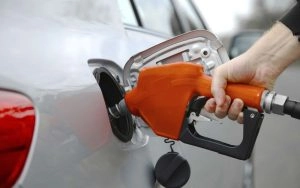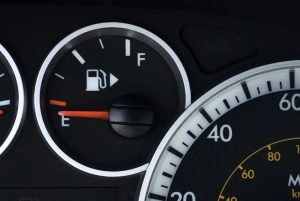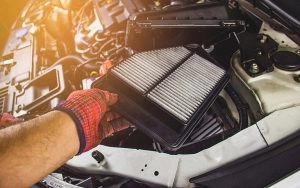Some cars may encounter a problem with increased fuel consumption, where they suddenly use larger amounts of fuel.
In this article, we will examine some common reasons leading to increased fuel consumption in cars so that you can avoid them.

Reasons for Increased Fuel Consumption in Cars
Damage to the engine or parts of it.
It begins with the most severe situations a car may face, which is having a problem with the engine. A damaged engine cannot function properly and, in turn, can consume more fuel.
Some people may think that the engine itself cannot be damaged when the car has covered only a short distance, and they are right, the engine might be fine but its fundamental components that contribute to the combustion cycle could be damaged.
For example, damage to the spark plug or the oxygen sensor or the fuel pressure regulator can lead to increased fuel consumption.
Your car's engine might function normally for a while, but it will not burn fuel efficiently. Ultimately, this will cause your car to consume more fuel than is usually required.
Using inappropriate oil
It might beEngine OilOne of the reasons for the high fuel consumption in your car is oil, a vital element needed by the engine to function properly.
As you know, there are many grades of engine oil available in the market, so you must be careful when choosing the type of oil for your car.
Engine oil that is more viscous than the recommended grade makes the pistons move with less freedom, which leads to an increase in engine temperature, ultimately leading to higher fuel consumption.

Poor fuel quality
You should always be careful about the type of fuel that goes into your car's engine, as low-quality fuel can significantly affect the engine's efficiency and lifespan.
There are numerous fuel additives available at gas stations that can make your car run better. However, be careful when choosing any additive for your car's fuel.
Any additive added to the fuel that is not suitable for the engine can cost you much more than what poor quality fuel could have done.
Good fuel additives work to clean your car's fuel system, remove buildup in the fuel lines, and reduce post-combustion deposit accumulation. This can easily lead to the car avoiding increased fuel consumption.
Also read: 5 Signs Indicating Damage to the Fuel Filter
Do not leave the engine running without reason.
Leaving your car running while it is stationary is another way you can waste fuel. Don't leave the engine running without any justification. Unfortunately, this bad habit is widespread in Arabic countries.
Keeping the engine running without reason leads to fuel wastage. Therefore, if you are waiting to pick up someone or if you are planning to stop at the supermarket for a short period, make sure to switch off your car's engine.
Using the air conditioning all the time.
Using the air conditioner is one of the reasons that makes your car consume more fuel. The car's air conditioner extracts energy only from your car's engine, so the engine is subjected to more stress, forcing it to do more work and consume more fuel in the end.
Keeping your windows closed and periodically opening them to recycle the air is a wise decision, as it can help you avoid increased fuel consumption. However, if you're driving at high speeds, opening the windows increases drag, which can lead to additional engine work.
Problems with car tires
In case of corrosionYour car tiresIf it revolves more to move the car and maintain a certain speed, this could be a major reason that could lead to increased fuel consumption in your car. On the other hand, if your car's tires are inflated less than the recommended pressure, your car will also consume more fuel in this case.
Regularly caring for your car tires is a good habit that will not only help you avoid fuel consumption, but will also assist you in maintaining your car tires in good condition for a long period.
Driving in the wrong gear
This is only for owners of manual cars, as driving the car in a low gear at high speeds will make the car consume more fuel, because each gear has speed limits, and this should be carefully considered. Similarly, driving the car in a higher gear will also lead to increased fuel consumption.
In order to get the maximum efficiency from your car's engine, you need to drive it on the appropriate gear, just like what the automatic transmission does in modern cars.

Speed and Overload
Excessive speed always leads to engine stress because it has to work hard, which results in increased fuel consumption.
Generally, in regular cars, speeds exceeding 120 km/h lead to fuel wastage.
Similarly, overloading puts unnecessary pressure on the engine, in order to move the car while carrying the extra weight. This forces the engine to work harder to produce more power; therefore, it consumes more fuel in this process.

Comments